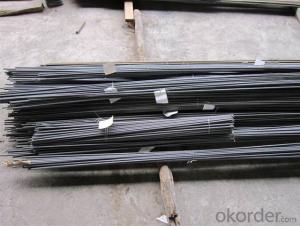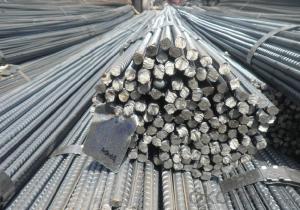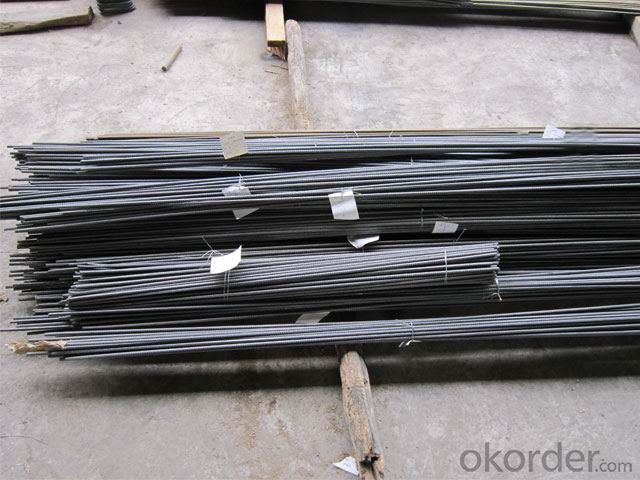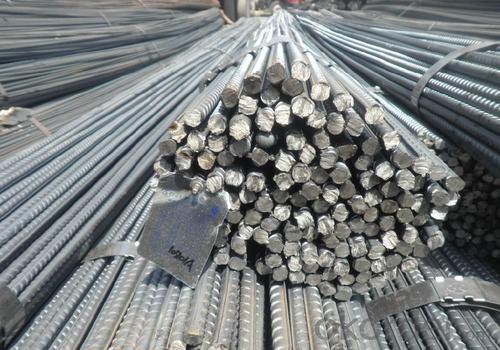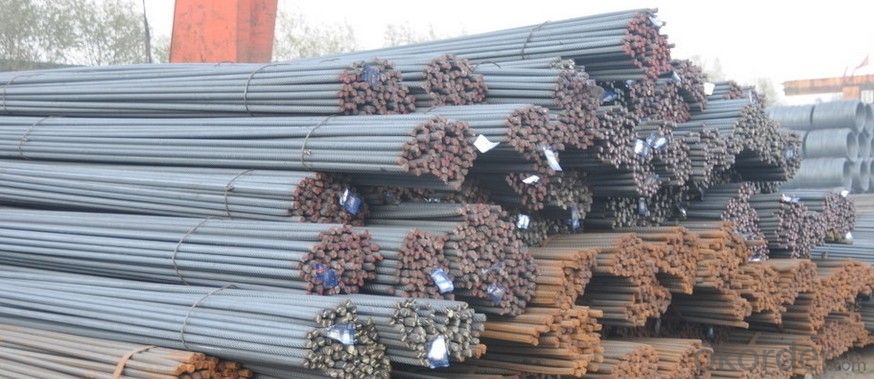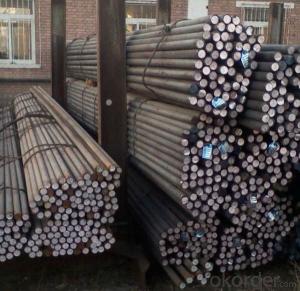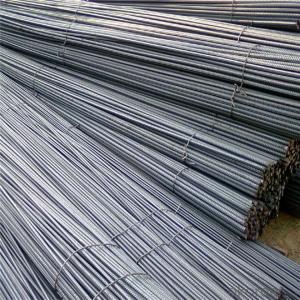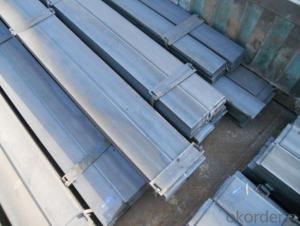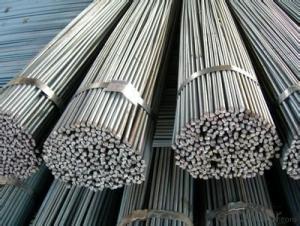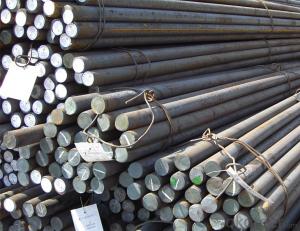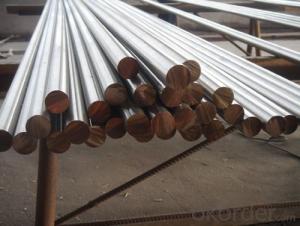Q195 TMT Steel Bars Hot Rolled Bars
- Loading Port:
- Tianjin
- Payment Terms:
- TT OR LC
- Min Order Qty:
- 25 m.t.
- Supply Capability:
- 50000 m.t./month
OKorder Service Pledge
OKorder Financial Service
You Might Also Like
Specification
Q195 TMT Steel Bars Hot Rolled Bars
Product Details:
Standard | GB(HRB335/HRB400/HRB500); |
BS4449 -1997 GRADE 250B, 460B; BS4449-2005 GRADE 500B; | |
ASTM A615 GRADE 40,GRADE60,GRADE75; ASTM A706; | |
DIN488-1 420S/500S, BST500S | |
JIS G3112 SD35, SD40, SD50,SD390 | |
NFA 35016 FE E 400, FE E 500 | |
CA 50/60 | |
GOST A3 R A500C | |
Surface finished | Screw-thread |
Production capacity | 50,000 MT/month |
Payment term | T/T or 100% L/C at sight |
Package | By bundles. One bundles about 2tons |
Specification:
Diameter (mm) | Weight (kg/m) |
8 | 0.395 |
9 | 0.499 |
10 | 0.617 |
11 | 0.746 |
12 | 0.888 |
13 | 1.04 |
14 | 1.21 |
15 | 1.39 |
16 | 1.58 |
17 | 1.78 |
18 | 2 |
19 | 2.23 |
20 | 2.47 |
21 | 2.72 |
22 | 2.98 |
23 | 3.26 |
24 | 3.55 |
25 | 3.85 |
28 | 4.83 |
32 | 6.31 |
36 | 7.99 |
40 | 9.87 |
50 | 15.42 |
Advantage:
· SGS and BV Audited company .
· We offer competitive price with great service .
· Finished Product Inventory-More Than 50000 Tons.
· We have win high reputation based on best quality products.
· We have the most convenient transport and fast delivery.
· We have high technical production line with top quality products.
Application:
Q195 TMT steel bar is a practical construction steel materials. It is widely used as the fitting bar for various steel bar concrete structure engineering and making of various construction components. With its high strength and the fixing strength with concrete, its sufficient plastic property, it can enhance the technical and the quality of the engineering, reduce the cost of raw materials and the cost of engineering at the same time. The finished products can be round coil or straight sizes.
Product Show:
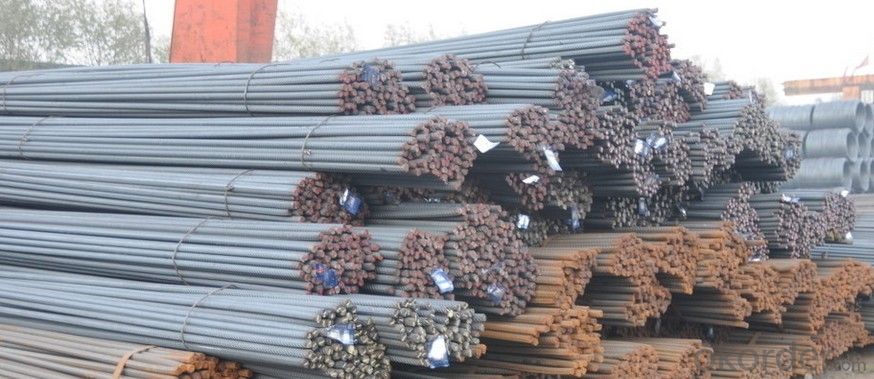
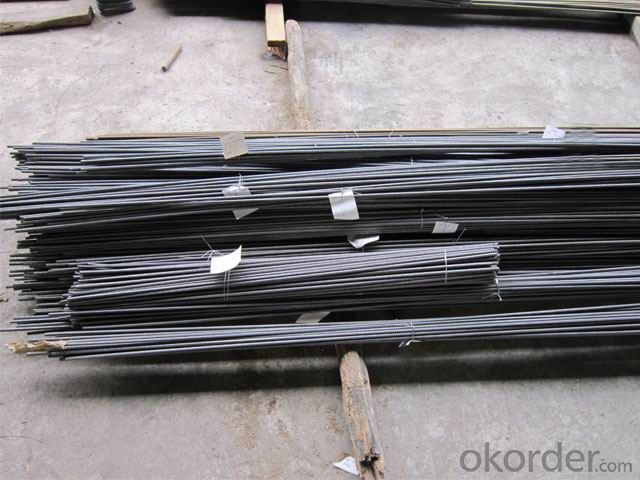
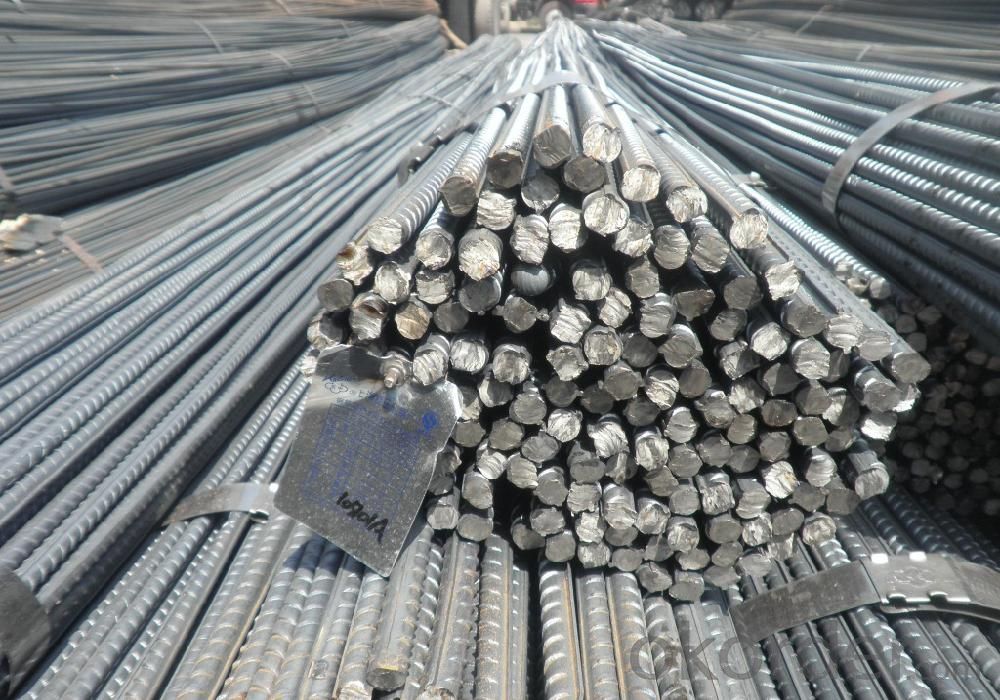
- Q: What are the main factors affecting the cost of special steel?
- The main factors affecting the cost of special steel include the cost of raw materials, such as iron ore and alloying elements, production and manufacturing costs, market demand and competition, transportation and logistics expenses, and global economic factors such as currency exchange rates and trade policies. Additionally, the complexity and uniqueness of the steel's composition and processing requirements can also impact its cost.
- Q: What are the different surface finishes available for special steel?
- There are several different surface finishes available for special steel, including polished, brushed, satin, and matte finishes. Each finish offers a unique appearance and texture, allowing for customization and versatility in various applications. Additionally, special coatings such as powder coating or electroplating can be applied to enhance the surface finish and provide additional protection against corrosion or wear.
- Q: Can special steel be used in the construction industry?
- Yes, special steel can be used in the construction industry. It offers several advantages such as high strength, durability, and resistance to corrosion, making it suitable for various applications in construction, including beams, columns, and reinforced concrete structures. Special steel can also provide cost-effective solutions by reducing the need for additional materials and maintenance.
- Q: Are there any international standards for special steel?
- Special steel is subject to international standards, which are established by the International Organization for Standardization (ISO). ISO develops and publishes a variety of standards that encompass different aspects of special steel, including its composition, properties, testing methods, and quality requirements. These standards ensure that special steel manufactured by various companies and countries adheres to the same minimum quality and performance criteria. Apart from ISO, other organizations and standards bodies, such as the American Society for Testing and Materials (ASTM) and the European Committee for Iron and Steel Standardization (ECISS), also have their own specific standards for special steel. These international standards establish a unified framework for the production, trade, and utilization of special steel across diverse industries and countries, promoting consistency, reliability, and quality assurance.
- Q: What are the unique properties of stainless steel?
- Stainless steel possesses several unique properties that set it apart from other metals. Firstly, it is highly corrosion resistant, making it ideal for applications in environments with high moisture or chemical exposure. Secondly, stainless steel has excellent strength and durability, allowing it to withstand extreme temperatures and heavy loads. Additionally, it is hygienic and easy to clean, making it popular in industries such as food processing and medical equipment. Lastly, stainless steel is aesthetically pleasing, with a shiny and polished appearance that can be maintained over time.
- Q: Can special steel be used in the telecommunications equipment manufacturing industry?
- Yes, special steel can be used in the telecommunications equipment manufacturing industry. Special steel is known for its high strength, durability, and corrosion resistance, which are important factors for the telecommunications industry. It can be used in the manufacturing of various components such as antennas, transmitters, receivers, and cables, ensuring reliable and efficient communication networks.
- Q: What are the different cryogenic grades of special steel?
- Specifically designed for use in extremely low temperature environments, there are several cryogenic grades of special steel available. These grades have been developed to retain their mechanical properties and prevent brittleness at cryogenic temperatures, making them ideal for applications such as LNG storage tanks, aerospace equipment, and low-temperature chemical processes. Among the commonly used cryogenic grades is the 300 series stainless steel, particularly types 304 and 316. These stainless steels contain nickel, which enhances their cryogenic toughness and ability to withstand thermal stress. Consequently, they are frequently employed in the construction of cryogenic storage vessels and piping systems. Another popular cryogenic grade is the 9% nickel steel, which is alloyed with approximately 9% nickel. This alloy provides excellent low-temperature toughness and ductility. As a result, it is often chosen for constructing LNG storage tanks, capable of withstanding the extremely cold temperatures required for the storage and transportation of liquefied natural gas. In addition, there are special low-temperature carbon steels, such as ASTM A350 LF2 and ASTM A333 Grade 6, which are engineered to maintain their toughness and impact resistance at cryogenic temperatures. These steels find extensive use in low-temperature applications, including cryogenic piping systems and equipment for the oil and gas industry. In conclusion, the various cryogenic grades of special steel encompass stainless steels (such as the 300 series stainless steel), 9% nickel steel, and low-temperature carbon steels (like ASTM A350 LF2 and ASTM A333 Grade 6). Each grade has been specifically designed to endure the challenges presented by extremely low temperatures while retaining their mechanical properties and resistance to brittleness.
- Q: How does special steel contribute to the renewable energy conversion efficiency?
- Special steel plays a crucial role in improving the renewable energy conversion efficiency by offering enhanced mechanical properties, corrosion resistance, and temperature resistance. It is used in the manufacturing of various renewable energy components such as wind turbine blades, solar panels, and hydroelectric power systems. The strength and durability of special steel ensure that these components can withstand harsh environmental conditions, resulting in increased efficiency, reliability, and lifespan. Additionally, special steel's high thermal conductivity allows for efficient heat transfer in concentrated solar power plants, further optimizing energy conversion.
- Q: How does special steel compare to stainless steel?
- Special steel and stainless steel are both types of steel, but they differ in their composition and properties. Special steel refers to a broader category of steel that encompasses various types with specific properties tailored for specific applications, whereas stainless steel is a specific type of special steel known for its resistance to corrosion. While special steel can be customized to meet specific mechanical, thermal, or electrical requirements, stainless steel excels in providing excellent corrosion resistance, making it suitable for applications in environments with high moisture or chemical exposure. So, in summary, special steel is a broader category, while stainless steel is a specific type within that category, known for its corrosion resistance.
- Q: How does special steel contribute to the electrical resistance of products?
- There are several ways in which special steel can contribute to the electrical resistance of products. To begin with, special steel can be customized in terms of its composition to possess specific electrical properties, such as resistivity. By carefully choosing the appropriate alloys and adjusting the carbon content, special steel can be made to have a higher resistivity compared to regular steel or other materials. This increased resistivity is advantageous in situations where electrical conductivity needs to be restricted. For instance, in electrical wiring, the utilization of special steel with higher resistivity can help prevent excessive current flow, thereby reducing the risk of overheating and potential electrical hazards. Similarly, in electrical resistors, special steel can be employed to achieve the desired level of resistance, allowing for controlled current flow and energy dissipation. Moreover, special steel can also contribute to electrical resistance through its physical properties. The microstructure of special steel can be engineered to enhance its resistance to the flow of electrical current. For example, the introduction of certain alloying elements or the implementation of specific heat treatment processes can generate a fine-grained structure or create barriers to the movement of electrons, ultimately increasing the overall resistance. Additionally, special steel finds application in the production of electrical contact materials. These materials must possess specific electrical and mechanical properties to ensure reliable and efficient electrical connections. Special steel alloys can offer high electrical conductivity while also exhibiting resistance to corrosion, wear, and deformation, thereby contributing to the overall electrical resistance of the product. In conclusion, special steel contributes to the electrical resistance of products through its tailor-made composition, which provides higher resistivity compared to regular steel. Furthermore, the microstructure of special steel can be modified to enhance its resistance to electrical current flow. Whether it is employed to limit current flow, control resistance, or create dependable electrical contacts, special steel plays a crucial role in a variety of electrical applications.
Send your message to us
Q195 TMT Steel Bars Hot Rolled Bars
- Loading Port:
- Tianjin
- Payment Terms:
- TT OR LC
- Min Order Qty:
- 25 m.t.
- Supply Capability:
- 50000 m.t./month
OKorder Service Pledge
OKorder Financial Service
Similar products
Hot products
Hot Searches
Related keywords
